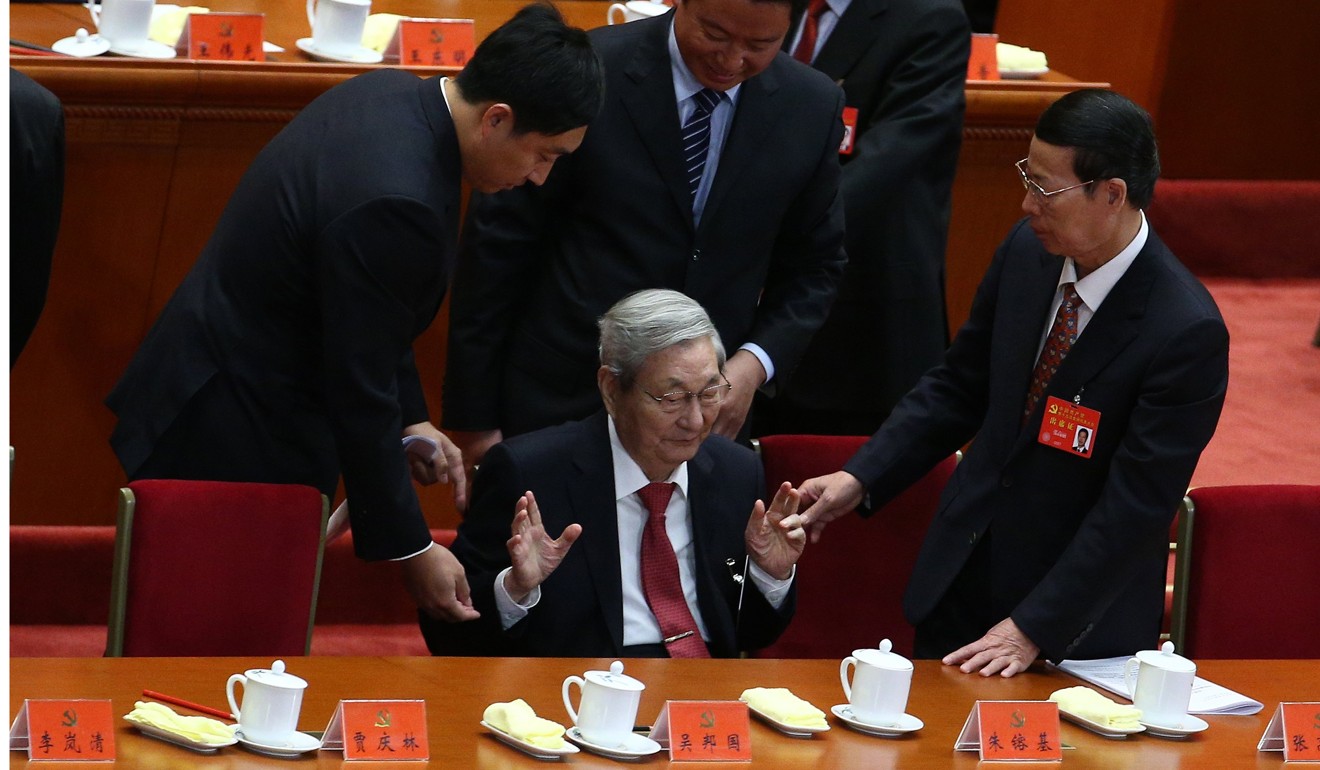
‘Be bolder’: Chinese central bank chief Zhou Xiaochuan looks back as he heads for the exit
Zhou is stepping down after 15 years shepherding the country through big financial changes
One of the key players in China’s financial liberalisation over the last decade and a half said on Friday that he was honoured to have been part of the process and urged the country to be bolder in embracing foreign competition.
In what is likely to be one of his last public appearances as head of the People’s Bank of China, Zhou Xiaochuan, 70, said he could not isolate any one pivotal moment in his more than 15 years in the job because there had been so many.
“I have worked for so many years in the financial system.There are so many things and it’s difficult to say which is one is important or which one is not important,” Zhou said.
“I find the theme of this press conference quite fitting,” he said, pointing to the “financial reform and opening up” sign behind him on the sidelines of the National People’s Congress.
“I feel honoured to work with all of you to push forward China’s financial reform and opening up. I feel very honoured.”
Zhou was appointed in December 2002 by then-premier Zhu Rongji and is the country’s longest serving central bank governor.
When he first took on the job, Alan Greenspan headed the US Federal Reserve and China’s economy was about the size of Italy’s. Today, China’s economy is on track to be the world’s biggest.
Although China’s central bank is not an independent agency, Zhou is widely seen as a key figure behind the country’s financial liberalisation over the past 15 years.
On Zhou’s watch, China has freed up interest rates, allowing Chinese banks to in theory set their own interest rates; Beijing has abandoned the peg to the US dollar; and China’s central banking operations have increasingly relied on open markets.
Zhou also played his part to convince the International Monetary Fund to give the yuan nominal international reserve currency status by including it in the IMF’s Special Drawing Rights currency basket.

Meeting the press on Friday, Zhou said the Chinese government could be bolder in opening up the financial sector to foreign competition.
He also said the PBOC would play “a more important role” in financial risk control after a regulatory overhaul, but did not offer details.
Liu He, a top aide to Chinese President Xi Jinping, will succeed Zhou at the central bank, according to a Reuters report last month. Liu is also expected to be named as the country’s vice-premier in charge of financial affairs.
But analysts said the jury was still out on whether the market liberalisation started by Zhou and other “reformers” would continue.
“Whereas Zhu Rongji is considered a legendary economic reformer, and Zhou Xiaochuan is seen as a sophisticated and successful manager of China’s continued economic growth, Beijing seems to have now re-prioritised politics over economics,” Brock Silvers, managing director of Kaiyuan Capital in Shanghai, said.
“The PBOC doesn’t operate with the independence of a US Federal Reserve, and if Xi Jinping’s PBOC selection is more of an implementer rather than a formulator of economic policy, the specific individual selected may be less important.”


